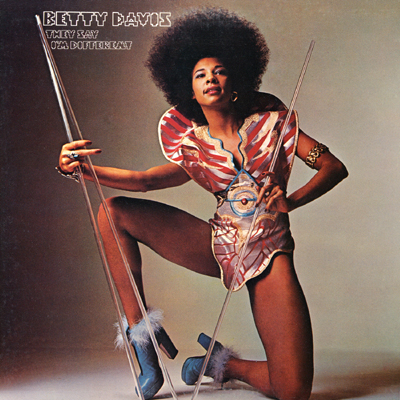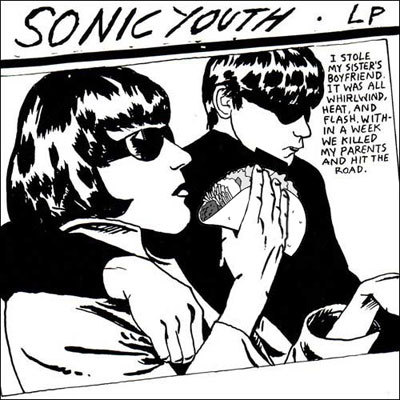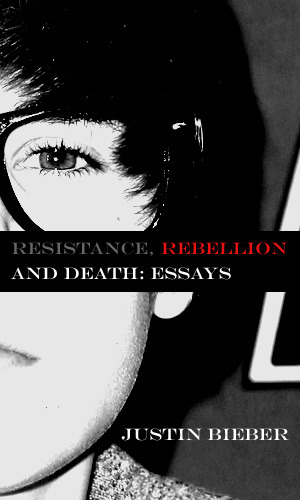Monday, August 30, 2010
A Few Words From Michael Alec Rose, Author of Audible Signs...

How I Found My Musical Ground
Notes by Michael Alec Rose
Author of Audible Signs
I wrote Audible Signs (just published by Continuum) for anybody who loves music, for everybody who feel passionately that this love can be investigated but never fully explained, for all who seek (like me) new ways of conversing intelligently about music, new strategies to honor both its exceptional clarity of feeling and its irreducible mystery.
The impetus to compose these “Essays from a Musical Ground” goes back to 1991, when I launched a newsletter called Musings, my way of keeping in musical touch with far-flung friends, some of whom play an active role in Audible Signs (I couldn’t have written the book without them). Musings ran to a single issue. Marriage, commissions for new musical works, parenthood, all intervened. But that essay—Vol. 1, No. 1—haunted me down the years and led to further essays, some for my students at Vanderbilt University, others for concertgoers in Nashville who enjoy grand opera at least as much as the Grand Old Opry. The lone issue of Musings now serves its turn in Audible Signs: it has been revised, expanded, and mounted as one piece of artillery in my fourfold assault (Chapter 4) on Alex Ross’s bestselling book on twentieth-century music, The Rest Is Noise.
The commingling of “Hey Jude,” Beethoven’s Ninth, and Shakespeare’s Sonnet #8 (in Chapters 2 and 3) springs from ongoing conversations over the years with students in my Beethoven and the Beatles course. I started “ Letter to My Daughter” a few years ago, but it was only last winter—as I was finishing the book—that Regina Spektor came into view as an ally of Rembrandt . The other essays in Audible Signs are newly minted, struck with the hot iron of all the great music reverberating between its two covers.
A further word about my argument with Ross, for those readers who (I hope) will have fun reading Chapter 4. I could easily have written at length about the things I enjoy in The Rest Is Noise. Why, then, in Audible Signs have I lodged such a litany of grievances against a book I generally admire? First things first: just as there is no need to have listened to the music I write about in Audible Signs before reading it, it’s not required to read Ross’s book before diving into my disputation with him. What’s at stake here is a principle that drives everything in my book—an idea that motivates all my work, all the more so the music I compose:
We show our love for people and things by paying close attention to them,
by putting them at the center of our imaginative regard and celebrating them in all their complexity. My goal in cataloguing the shortcomings of Ross’s The Rest Is Noise is to encourage both his readers and mine to love more richly the difficult musical repertory he and I are both tackling. Perhaps I have taken my notion of “tackling” a bit too far in my pugnacious attitude towards Ross. Therefore, I’m grateful to have this opportunity to say once again that I remain a faithful—i.e., disputatious—fan of Ross’s writings on music.
I hope you will enjoy Audible Signs in the same spirit!
Friday, August 27, 2010
Poetry about Music
There's a poem in the current issue of the New Yorker by Julie Bruck. Here it is, reproduced without permission. (If anyone wants me to remove it, just let me know.)
MEN AT WORK
I said, “Do you speak-a my language?”
He just smiled and gave me a Vegemite sandwich.
—“Down Under.”
We middle-aged sense them immediately:
four brittle pop stars sprawled across
the rigid fibreglass chairs at the airport gate.
It’s not just that they’re Australian, that gorgeous
thunk of English, the stacked electric-guitar cases
draped with black leather jackets, or their deep
tans on this Sunday night in midwinter Toronto
that holds everyone’s attention, drawn as we are,
pale filings to their pull. Even their rail-thin
lassitude attracts us, as it must Doug, the portly
Air Canada gate manager in his personalized jacket,
who arrives to greet the band, cranking hands
and cracking jokes. Doug, who must live in
Mississauga with the wife and a couple of kids,
and who insists the boys come back to play Toronto
next year, when we clutchers of boarding passes
will have abandoned our carry-ons for tickets
to a midsized arena and a resurrected band
whose lyrics never did make sense but
which are laced to a beat that won’t let go—
propelling us down the carpeted ramps
of late-night flights on feeder airlines, hips
back in charge of our strange young bodies,
now shaking down runways in rows.
Is that poem any good? I have absolutely no idea. And could somebody write a poem about Men Without Hats, too?
Wednesday, August 25, 2010
And a little more on "Fuck You"
"This is perhaps the best use of puerility I've seen in a while, and like some of Mark Twain's funniest rants, it's characterized by an unusual energy, a full-fledgedness that's hilarious, in part, because it's so very cute--an impotent, multidirectional, adorable rage. This is how the song manages to be intense and light at the same time, angry and hilarious--like some of Twain's less sporting pot-shots at the literary lights of a previous generation. It's indulgent, childishly so, and that's what makes it appealing."

Matos on Cee-Lo
An extract here:
That’s true of the music as well. R&B has tended to be the most consistently forward-looking of pop styles, but over the past few years it’s been bitten hard by the retro bug, as recent albums from Amy Winehouse, Sharon Jones & the Dap Kings, and Raphael Saadiq demonstrate. Sometimes referred to as “throwback,” this style emits a very different vibe from the “neo-soul” codified by D’Angelo and Erykah Badu, ’60s punchy rather than ’70s languid. It’s also become a comfortable go-to style for current artists—there’s a lot of it on the new Fantasia album, for example. Cee-Lo has utilized it plenty—Gnarls Barkley’s “Run,” from The Odd Couple, is a clear example—and “Fuck You” cements it in R&B’s modern firmament.
And a link to the whole article here.
Facelift 2010
 We will be adding some features to the column to the right. Most notably, the answers to our two most frequently asked questions: "How/when can I submit a proposal to write a 33 1/3?" and "Where can I find a list of all the 33 1/3s in print?" We don't have it up just yet, but soon we will be able to point you somewhere other than wikipedia. Let us know if there's any other information (within reason) that you would like to see on here.
We will be adding some features to the column to the right. Most notably, the answers to our two most frequently asked questions: "How/when can I submit a proposal to write a 33 1/3?" and "Where can I find a list of all the 33 1/3s in print?" We don't have it up just yet, but soon we will be able to point you somewhere other than wikipedia. Let us know if there's any other information (within reason) that you would like to see on here.It's still a work in progress, and we're looking forward to doing a little more with the blog over the coming weeks and months, including broadening the scope a little bit to include more of our other music and sound art books, which are equally fantastic, even if they don't come in a uniform small trim size with cute multicolored spines.
In the meantime, here are some random music-related links (In other words, please allow me to clean out my bookmarks):
- Van Dyke Parks live at Primavera Sound via WFMU.
- NY Magazine asks which songs have benefited from their censored radio edits. (A sidenote: to me, the definitive versions of all John Hughes movies and all of the Police Academy franchise are the TBS censored-for-TV versions.)
- HTML Giant asks: what are the best or most inspirational music books? There are lots of 33 1/3s in the comments field, and quite a few of our sound art titles as well (In the Blink of an Ear, Noise/Music, "anything by Brandon Labelle," and so on). Continuum books aside, it's a great list of recommended reading.
- The Vice Magazine "Anti-Music Issue" contains some very solid writing within. The Sam McPheeters piece on the closed frontier of rock music is arguably the best of that sort of article I've read in recent days.
- Did I ever put a link up to this WFMU thing about Sonny and the Sunsets? I really love that album.
- Dave Tompkins' How To Wreck a Nice Beach has a downright entertaining blog. One of these days I look forward to reading the book.
- Early intimations of Wyclef Jean's presidential aspirations.
- Ten Musicians Who Would Probably Write Good Books, via Bookslut.
- John Gall discusses the design process for the cover of Tom McCarthy's debut novel Remainder.
- Peter Mendelsund and Tom McCarthy discuss the design process for his new novel, C (which, incidentally, is my horse in the office Booker Prize sweepstakes.)
Wednesday, August 18, 2010
Back Into the Abyss - Slayer revisit their 1990 album on tour
 Back Into the Abyss
Back Into the AbyssSlayer revisit their 1990 album on tour
On this summer's American Carnage tour, two of the biggest old-school thrash bands are performing classic albums from 1990. Megadeth are playing the guitar landmark Rust in Peace, and Slayer are tearing through all of Seasons in the Abyss, an album that helped pave the way for other classic records — including Jeff Buckley's debut and one by Cleveland's Integrity. Seriously.
Abyss' bone-dry production represents Slayer at their tightest. The hesher heavyweights were always palatable to punks, and the album's sludgy slow jams were influential to a wave of hardcore bands like Integrity. It was co-produced by Rick Rubin and engineering ace Andy Wallace, who later mixed Nirvana's Nevermind and produced Buckley's Grace. Rubin is still the band's executive producer, but back then he and Wallace were active participants in the creative process.
Guitarists Jeff Hanneman and Kerry King had dominated the previous albums' lyrics and music, but Abyss is heavy on singer-bassist Tom Araya's songs. He penned four of Abyss' ten tracks and co-wrote another two with Hanneman, who was his roommate during the recording. Araya recently looked back on the album and broke it down, track by track.
Full story at:
http://www.clevescene.com/cleveland/music-lead/Content?category=1518228
Sunday, August 15, 2010
Friday, August 06, 2010
Dan Kois at Housing Works next Thursday!
Should be a lot of fun. I hope to see some of you there...
Monsters from the Id, Part I
 One of my good friends has a nephew who's interested in music turning 16 in a little bit and she has come up with a brilliant birthday present: she has commissioned an esteemed high court of her friends (including myself) to come up with a mixtape for her nephew composed of songs for someone turning 16, or songs that someone turning 16 should know about.
One of my good friends has a nephew who's interested in music turning 16 in a little bit and she has come up with a brilliant birthday present: she has commissioned an esteemed high court of her friends (including myself) to come up with a mixtape for her nephew composed of songs for someone turning 16, or songs that someone turning 16 should know about.I've been going through some stuff the last few days, and let me tell you, it's been a long time since I thought about being 16--it's something I avoid at all costs, actually--but it turns out that it's a whole new way of looking at your music collection. (A whole new AWESOME way of looking at your music collection.)
In a few weeks, I'll post what I came up with for my mixtape, but in the meantime, I'd be curious to hear what you think are essential songs for surviving their 16th year. This is your chance to play the role of the corrupting big brother or sister, if you haven't had the pleasure already. Go for it in the comments field...
Wednesday, August 04, 2010
Betty Davis interview
I listened to it twice.
*For the record, this interview is with Betty Davis, not Bette Davis.








